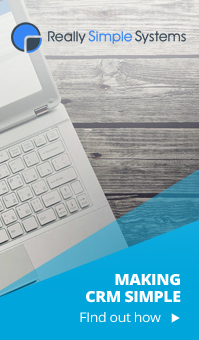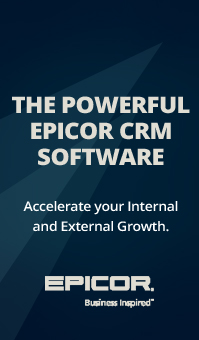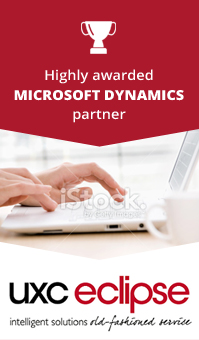
What is Cloud CRM?
The current popularity of cloud computing has brought today's businesses a versatile line-up of new options for handling their customer relationship functions. Known as cloud CRM, this online software harnesses the power of the Web to deliver greater convenience and improved functionality to the customer relationship management process for the modern enterprise. Cloud CRM offers businesses a solid set of features that deliver many of the same key benefits as on-premise CRM software but with a technological boost.
What exactly is it that differentiates the next-generation online CRM solution known as Software as a Service (SaaS) from its traditional, computer-based counterpart? Let's start by looking at the major characteristics of cloud CRM.
What's so Different about Cloud-Based CRM?
Cloud CRM's primary characteristic — and primary point of differentiation from traditional CRM software — is its location. Whereas local CRM solutions physically reside on a computer or client server, cloud CRM, like all other SaaS technology, lives in cyberspace — that ethereal online universe that's become known as "the cloud." You may also hear cloud solutions referred to as Web-based, or hosted, solutions.
Whichever name may be most popular for this software at any given time, cloud-based CRM is delivered and controlled via the Internet rather than through a local area network (LAN). This makes it convenient to access and use from virtually any location — adding unprecedented mobility and flexibility to the customer relationship management equation.
Advantages of Cloud CRM over On-Premise
CRM Cloud CRM offers a variety of advantages over its on-premise cousin:
- No need to install or upgrade software, which is accessible right online
- Ability to give software a test run through free trials, comparing brand features
- Cost based on number of users — an advantage for smaller businesses
- Easily scalable solution based on company size and needs
- No need for IT administration or support, which is handled online
- Simple social media integration
- Portability above and beyond local CRM solutions
- Pay as you go, rather than buying your software license up front
- Easy-to-customize to individual company needs
Disadvantages of Cloud CRM in Comparison to On-Premise CRM
In the interests of providing a balanced perspective and allowing individual business owners to make the wisest choice for their own operations, the following potential disadvantages of cloud CRM may also prove helpful:
- Complexity of some cloud CRM platforms
- Overabundance of features for many smaller companies' needs
- Potential online data security issues
- Possible data loss on termination of service
- Need for a well thought out exit strategy
- The Future of Online CRM Looks Bright for the Forward-Looking Entrepreneur
Though many business owners may find on-premise CRM to be sufficient for their needs, the savviest entrepreneurs with a vision for implementing the most up-to-the-minute CRM programs and processes will find the time and effort required to get up to speed on this new technology to be more than worth their while. Using such popular CRM solutions as Salesforce.com, Microsoft Dynamics CRM, Oracle CRM on Demand, SAP 360 Customer, RightNow, and IBM or SugarCRM can help prepare today's companies for a bold new future of customer collaboration and client satisfaction.
As social CRM continues its highly profitable intersect with mobile CRM, making a wider range of Internet-enabled mobile devices commonplace, a new wave of flexible CRM management systems will rise, and the companies that are already riding the online CRM wave are the ones that will be poised to reap the greatest rewards.
Date posted: 2014-12-22 | posted by: miked
Tweet



